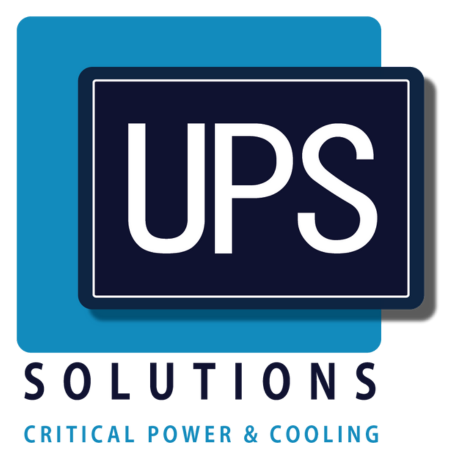Within your UPS system there are a series of components that should be regularly serviced and maintained. For your system to perform as it should, each part should be at its best, and if they aren’t, the whole system can be affected. Here we will take a look at what these key components are and why they matter.
Understanding the importance of UPS maintenance
Your UPS, or uninterruptible power supply, exists to protect your systems from a power cut, power surge or other issue that would otherwise cause a loss of power, an inability to function, and can have serious repercussions for your business.
Just having a UPS system in place isn’t enough – it must be properly maintained in order to perform correctly when you need it.
Why is UPS maintenance crucial for reliable power protection?
Every component and part of your UPS system has a certain lifespan and maintenance needs, and if you leave one part to fail then soon your whole system could go with it. It is crucial that your UPS system perform as it should in the event of a power failure, and it won’t if it has not been regularly and fully maintained.
Benefits of regular UPS maintenance for businesses
The key benefits of regular maintenance are:
- By preventing or fixing issues early on you can save on replacing the whole system.
- You can gain peace of mind that your system will perform as it should when needed.
- You can prolong battery life.
Essential UPS components that require maintenance
Here are the main components of your UPS system that tend to require the most care, what they do and how they should be maintained.
Batteries: Lifeline of your UPS system
Your UPS battery is crucial to your system. If it is properly looked after it can last up to 5 years and can support your UPS system as it runs for the required time to keep your power on and your company going.
A poorly stored battery in excessive temperatures or even one that is degrading (or otherwise in need of replacing) can lead to all sorts of problems for your system. Monitoring and replacing your UPS battery can often be the solution to many issues with a UPS.
Capacitors: Critical for smooth power flow
Capacitors store and release electrical energy and they also smooth out any voltage fluctuations at the same time. These small but essential components of a UPS system are crucial for controlling the output voltage and keeping everything running.
They too have a certain lifespan and will require maintaining and replacing as needed.
Fans and cooling systems: Keeping your UPS cool
As your UPS gets to work, certain electrical components like the inverter and rectifier start to heat up. Without fully functioning fans and cooling systems they would overheat causing them to deteriorate quicker. This can also lead to all kinds of issues, some of which are dangerous, so they must be maintained regularly to prevent this.
Filters and air vents: Ensuring proper airflow
The impact of dust alone can be staggering if filters and air vents aren’t properly replaced and maintained to ensure airflow and keep out debris. Some filters will need to be changed as often as once a month and your service provider should check them regularly. They are usually cheap to replace while the system as a whole is not.
Circuit breakers and fuses: Safeguarding against overloads
Circuit breakers and fuses are there to protect your UPS system, and if they are not working to the correct standards or need replacing your whole system could be overloaded and crash (or worse). They are again often inexpensive to replace and maintain as long as they are checked regularly.
Control and monitoring software: Monitoring and managing UPS performance
Your control and monitoring software is essential in the running and management of your UPS, and can be a nightmare if allowed to become less than fully functional.
Regular servicing is key, as well as having plans in place for the event that something does indeed go wrong.
Best practices for maintaining UPS components
In order to successfully maintain your UPS system and all of its components, you should combine preventative and corrective measures to do all you can to prevent any issues arising, and then have a plan in place to deal with them if they do.
Recommended maintenance schedule for UPS components
The exact maintenance schedule for your UPS components will vary, with some checks carried out yearly or quarterly, and others monthly or weekly. Batteries are likely to last upwards of 3 years while needing regular checks, while filters may need to be cleaned or replaced every month.
Importance of professional UPS maintenance services
Properly maintaining your UPS components can lead to your entire system performing better and doing so for longer. You gain the knowledge that your UPS system is there and ready should the need arise, and that it will operate seamlessly to protect your business.
Tips for DIY UPS component maintenance
If you are thinking of maintaining your own UPS components, remember that you should:
- Make a schedule and stick to it.
- Keep detailed records.
- Follow the manufacturer’s guidelines.
- Safety first – it may well be safer and better to leave the maintenance to the professionals.
Frequently Asked Questions (FAQs) about UPS component maintenance
How often should I perform UPS maintenance on batteries and other components?
You should visually check your batteries regularly, but many components will only need maintenance annually or bi-annually while others may need to be checked more often. Your service provider will set a schedule to carry it out.
Can I perform UPS maintenance in-house or should I hire a professional?
There are some aspects of UPS maintenance that you may feel comfortable attempting, but in general you should always hire a professional for a safe, efficient, and effective job well done.
What are the signs of a failing UPS component and how can I address it?
There are a number of signs of a failing component including a failure of the system to maintain power, overheating, a reduction in running time and so on. If you notice anything unusual contact your service provider.
Are there any safety precautions I should take when performing UPS component maintenance?
You should always keep meticulous records, never touch anything electrical when it is plugged in or switched on, and in general always focus on safety first and leave such jobs to the professionals.





